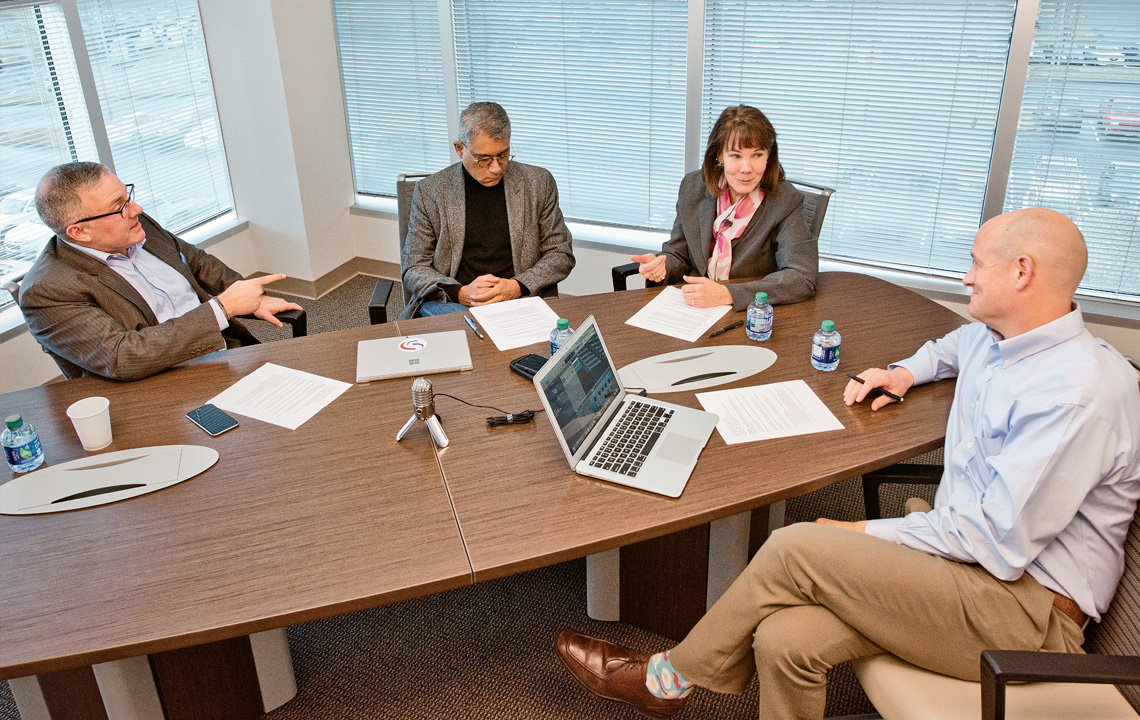
Tech Talk
Local IT leaders share career advice, business trends
By Nan Bauroth | Photos by Ray Sepesy
The favorite game of Jeff Hughes’ 5-year-old son these days is to run into the living room and ask, “Alexa, tell me a joke!” Hughes finds his son’s playful behavior with the revolutionary cloud-based device amusing, but also a portent of the profound transformation technology is making in our lives. And Hughes ought to know; he serves as chief information officer (CIO) for Brighthouse Financial, an annuities and life insurance company headquartered in Ballantyne.
To stay abreast of the tech curve, Ballantyne Magazine recently hosted a panel discussion with three local leading lights in information technology (IT). Panel moderator Ted Mueller, CIO of Northwood Office, invited Hughes, Rishi Bhatnagar, CEO of Syntelli Solutions, also headquartered in Ballantyne, and Dr. Valerie Truesdale, chief technology officer (CTO) for Charlotte-Mecklenburg Schools (CMS), to share their insights.
They addressed today’s IT career trajectory and what the latest generation of technological advances bodes for us professionally and personally.
Listen to the Podcast
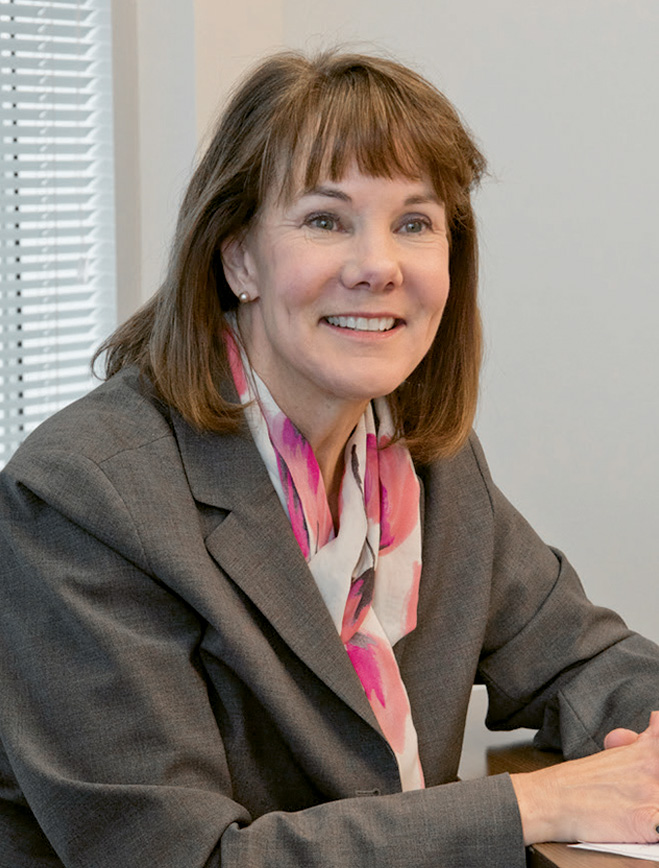

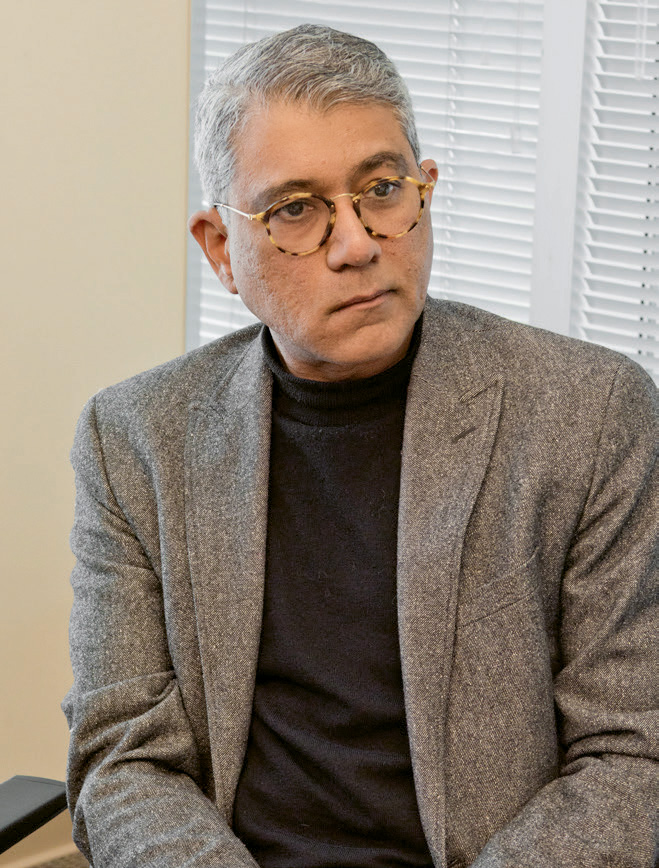
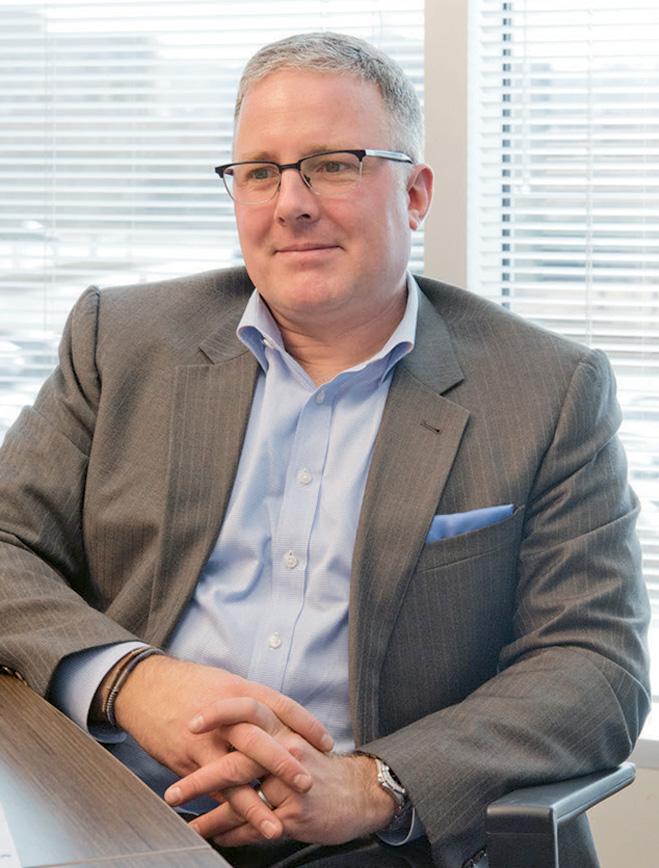
“There will still be some highly specialized IT jobs, but cross-pollination between IT and business is becoming more critical.”
— Rishi Bhatnagar
Circuitous Routes
Asked by Mueller to describe their career paths, all three panelists said they evolved into IT rather than being hatched as coders.
“I went through a discovery process,” Bhatnagar says. After obtaining his electrical engineering degree, he changed course to get an MBA in marketing. But then he switched to finance and became a risk analyst, working as a consultant. “I learned then that IT was key to everything, so a little IT understanding led me into this role,” he says. “I’ve never done any coding, but I understand why that code is necessary and what it should do. I am an accidental technologist, and I enjoy the business side of IT.”
The IT route for Hughes was also circuitous. “My education was spent in nuclear reactor physics, but while finishing my doctoral thesis, a friend suggested I consider a consulting firm focused on tech strategy,” he recalls. That led to working for investment banks in New York City, followed by a position as IT leader for a corporate client. “A year ago, I moved here to lead the IT program at Brighthouse Financial,” he says.
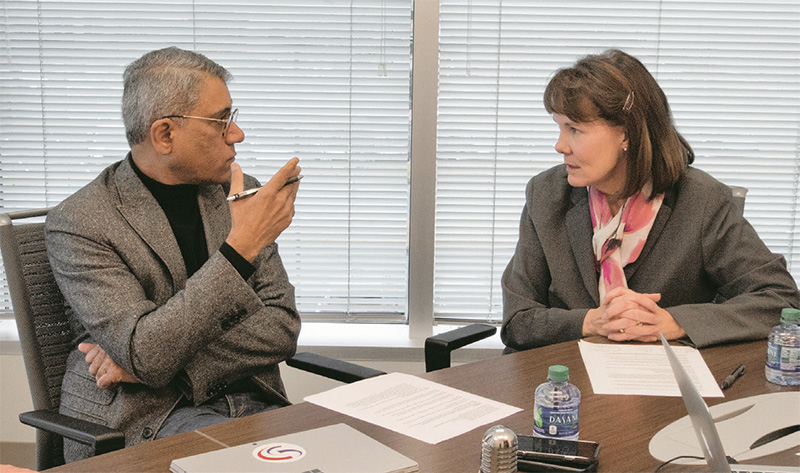
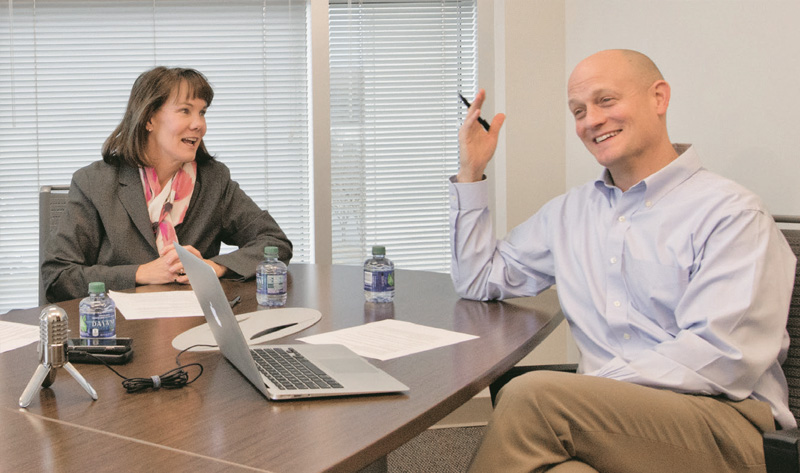
Exciting Technologies
Mueller asked each panelist to share the most exciting or transformational technology on their horizon. For Truesdale, it is completion of Wi-Fi infrastructure in every classroom and access to Chromebooks for students in grades 3 to 12. “We also have three magnet schools that teach robotic coding,” she says, “and gamification is coming along nicely, as it pushes critical thinking skills.”
At Bhatnagar’s company, organization-wide analytical solutions are big at the moment. But in his crystal ball, “how we take big data and advanced analytics to business problems will be transformative,” he says.
For Hughes, “one of the shifts at Brighthouse we are benefiting from is in service-delivery mechanisms. Instead of owning data centers or development resources, we will consume that from third-party providers.” The breakthrough technology that excites him most, though, is analytics. “Insurance and financial services are already leveraging sophisticated analytics and big data,” he says, “and we are too, looking to evaluate risk more effectively and capitalize on that like others in our industry.”
Hiring IT Talent
The skills of the panelists can be seen in their hiring practices. “I don’t hire IT people,” Bhatnagar stresses. “I want to hire business people who know IT. Every IT person today is first a business solutions provider, so they must understand business a lot more than they used to. There will still be some highly specialized IT jobs, but cross-pollination between IT and business is becoming more critical.”
Hughes concurs. “We are taking off-the-shelf software solutions to deploy within our organization, and the only way that is cost-effective is if the business can adapt to them. So, you must be able to translate between business and IT, and that means knowing what (and) how that business function operates, which is a tall order for people in those roles.”
Mueller interjected, “From our commercial real estate role as landlord of this corporate park, we empower employees to think that everyone must be a technologist,” he says. “Understanding and translating between business needs and how you execute and put the technology in place allows you competitive advantage.”
Truesdale echoes his sentiment. “Everyone has to be a technologist. There isn’t anybody who can exist in the 21st century and not be able to navigate and be confident in a tech world.”


